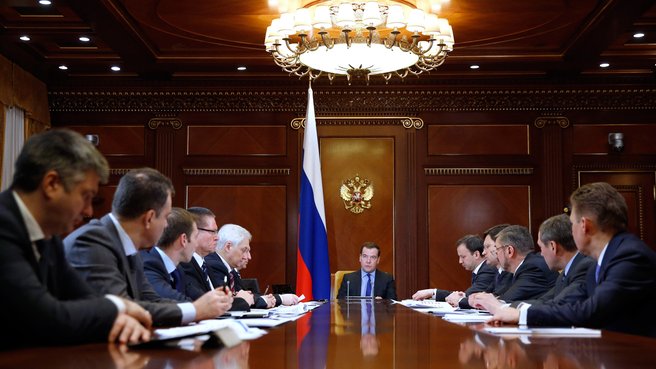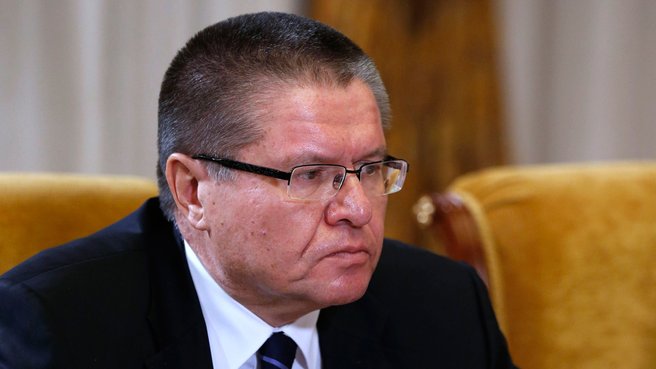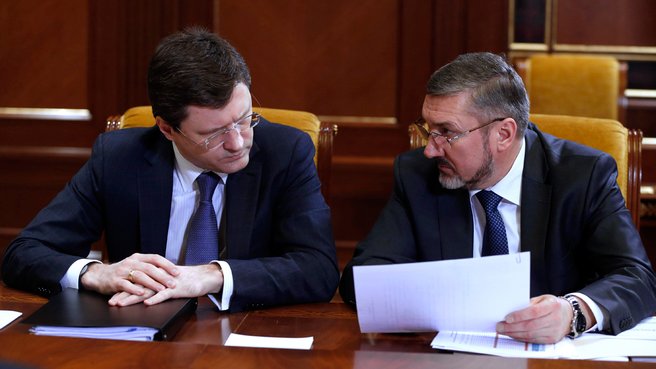Meeting participants focused on the principal methods of modelling long-term pricing policies in the energy and gas sectors.
Dmitry Medvedev’s opening remarks:
Colleagues, today we’ll be discussing long-term energy and gas pricing regulation. This is a strategic issue for us, because electricity prices largely depend on gas prices and consequently influence the cost of the consumer basket and also the competitiveness of the national economy.
In order to support the national economy, we have decided to hold infrastructure monopoly prices at the current levels, including the rates charged by the electricity and gas producers, for industrial users in 2014. We also plan to limit price increases to the rate of inflation in 2015.
Dmitry Medvedev: "Еlectricity prices largely depend on gas prices and consequently influence the cost of the consumer basket and also the competitiveness of the national economy."
After that, energy pricing should be transparent and predictable so that the gas and electricity distributors as well as industrial users can make their business and development plans and so the public can know how much they can expect to pay for gas and electricity.
We need a clear legal framework to be able to regulate these issues. Legislation on the gas sector allows us to approve long-term gas distribution prices for a period of three to five years. But we have no legislation on gas transportation prices for independent producers. The laws on energy stipulate long-term pricing policies, laws which the grid companies have been using since 2009. They can sign long-term contracts on the wholesale and retail electricity and capacity markets. However, these mechanisms have not been used to their potential so far.
Dmitry Medvedev: "Legislation on the gas sector allows us to approve long-term gas distribution prices for a period of three to five years. But we have no legislation on gas transportation prices for independent producers."
Another painful issue for the national economy is cross-subsidies. Electricity and gas prices in Europe are higher for households than for industries, unlike in Russia, where higher pries for industries are in fact used to subsidise relatively low prices for the public. At the same time, we need to remember that we produce gas, not buy it, and so the European model may not be fully applicable in Russia.
Dmitry Medvedev: "Electricity and gas prices in Europe are higher for households than for industries, unlike in Russia, where higher pries for industries are in fact used to subsidise relatively low prices for the public."
Anyway, I’d like to emphasise that we must preclude uncontrolled and unsubstantiated increases in energy costs for the people.















